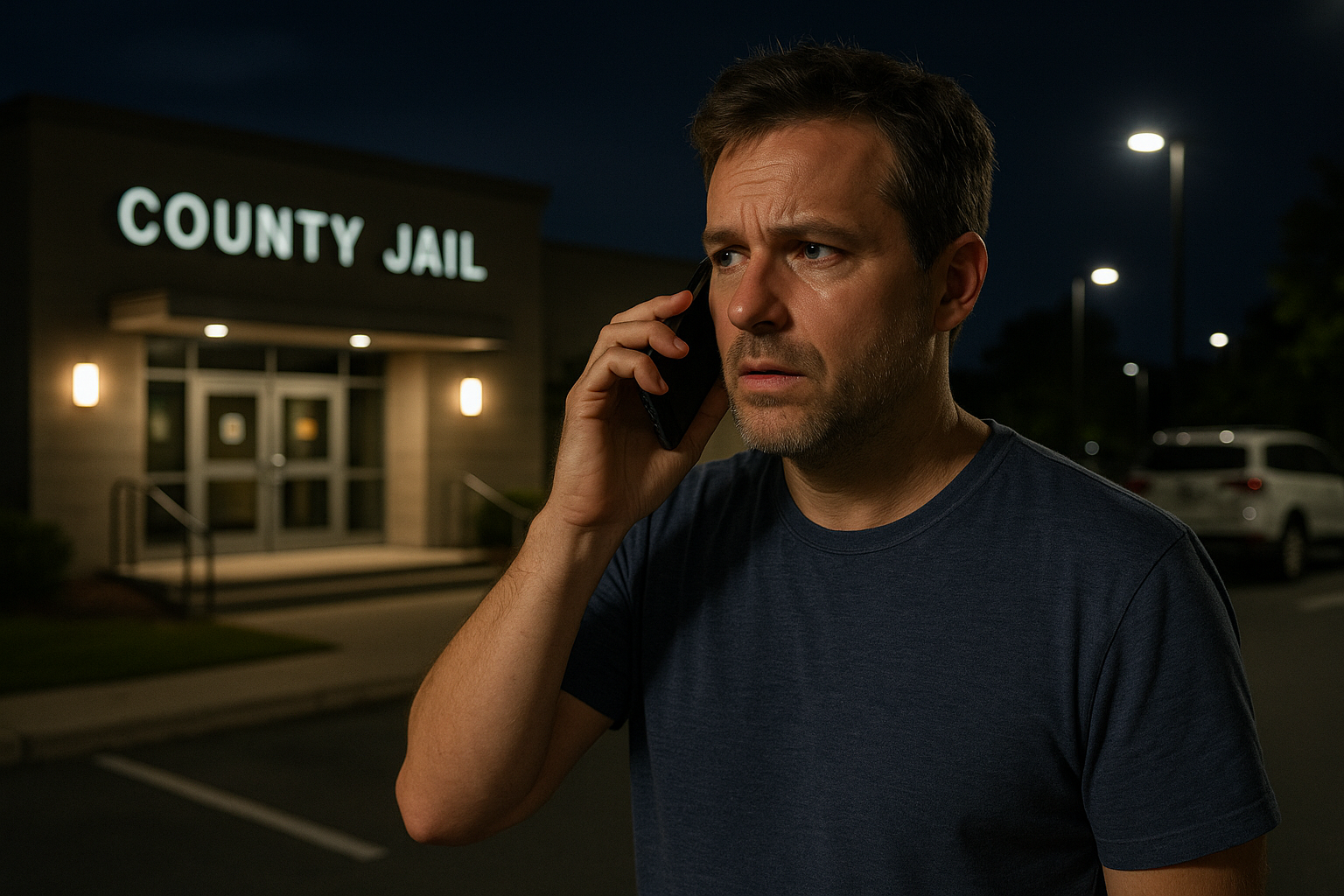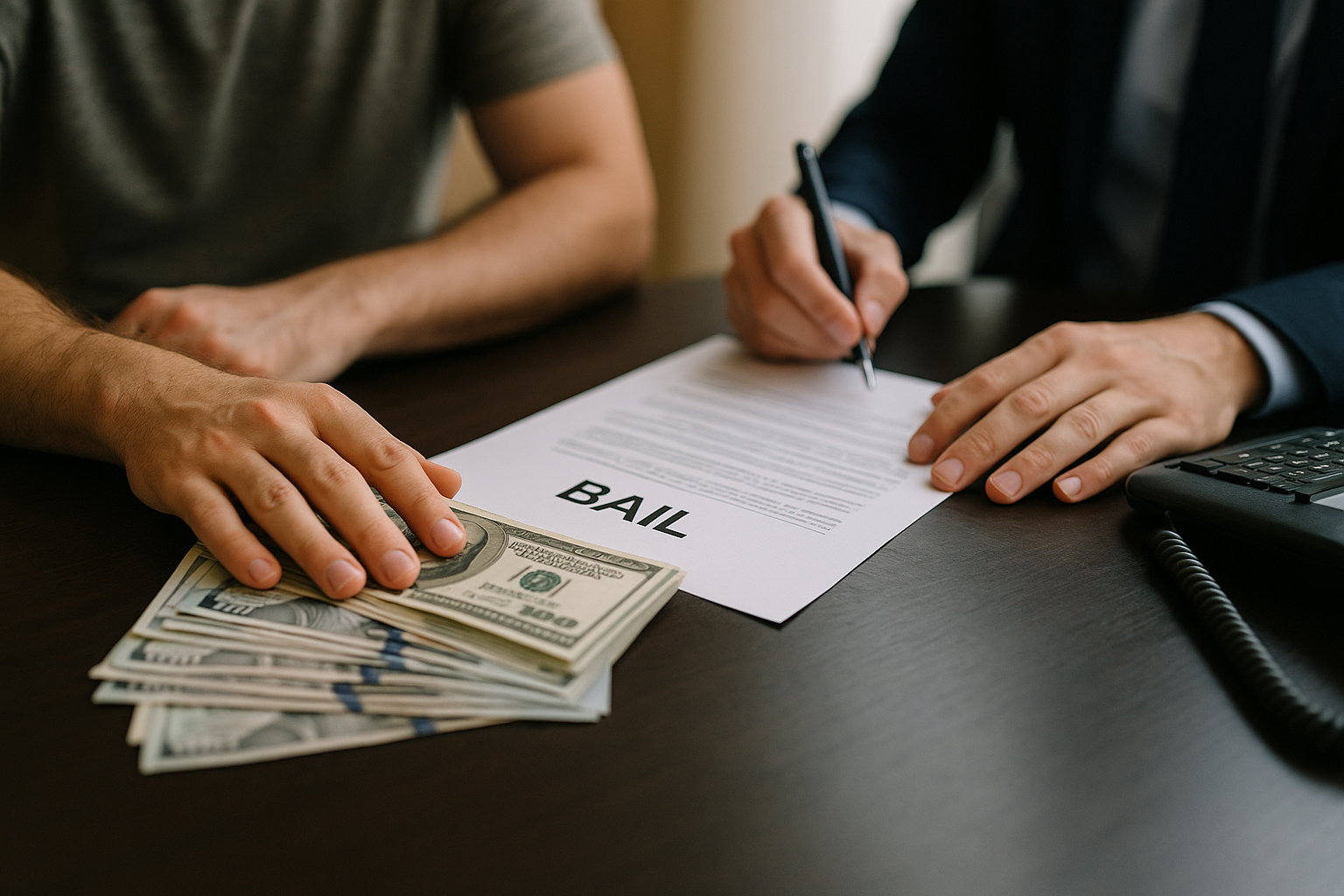Do You Always Need a Cosigner for Bail in Tampa?
Getting someone out of jail in Tampa isn’t always a one-size-fits-all deal. Sometimes you need a cosigner, sometimes you don’t. It depends on the case, the person, and what the bail agent sees when they look at the situation. Some people walk out with just their own signature. Others need someone else to back them up, both with their name and their money. The rules might look simple, but what actually happens is rarely black and white. When you work with our team, we help clarify what’s required for your specific situation and guide you through the process.

What Makes a Cosigner Stand Out
Bail agents don’t hand out trust. They look for proof. A cosigner needs to show they’re reliable, stable, and easy to reach. Here’s what gets attention:
- 500pxSteady job with paychecks that back up the story
- Clean credit, no missed payments, no big debts
- Florida address, lived there at least a year
- Government ID and a real, current address
- At least 21 years old
- No open criminal cases or active warrants
These aren’t just boxes to check. They show the cosigner can be found, has something to lose, and won’t disappear. Agents want someone who answers the phone, pays bills, and doesn’t run from problems. Even with all this, every case gets a close look. Sometimes agents ask for more proof or extra paperwork. Sometimes they make exceptions. The process isn’t rigid, but it’s never random. See the full bail bond process for more details on what to expect.
What Cosigning Really Means
Signing as a cosigner isn’t a favor, it’s a responsibility. The moment you sign, you’re on the hook for the full bail amount if the defendant skips court. The court and the bail agent both expect you to keep track of the person you’re helping. You’re not just vouching for their character. You’re guaranteeing their appearance with your own money and reputation.
Missed court dates bring real consequences. The bail agent comes to you for payment. The court expects answers. You could lose collateral, face lawsuits, or see your credit take a hit. Cosigning is a serious step. It’s not just a signature, it’s a promise with teeth. For a deeper look at what’s at stake, review bail requirements. If you’re unsure about the risks, our experienced bail bond professionals can walk you through every detail before you make a decision.
How Cosigners Protect Themselves
Smart cosigners don’t just sign and hope for the best. They set ground rules and keep communication open. Here’s what works:
- Stay in regular contact with the defendant, text, call, or meet in person
- Keep a calendar of all court dates and deadlines
- Remind the defendant before every appearance
- Document every conversation about the case
- Check in with the bail bond agency for updates
These steps aren’t just for peace of mind. They create a record. If something goes wrong, you have proof you did your part. Bail agents respect cosigners who stay involved. They know you’re serious. For more on working with professionals, see how Tampa bail bond agents help families.
When Cosigners Aren’t an Option
Not everyone has a friend or family member who qualifies as a cosigner. Some people are new to the area. Others have burned bridges. In these cases, bail doesn’t have to be out of reach. Tampa offers alternatives:
- Cash bail, pay the full amount up front, no cosigner needed
- Property bonds, use real estate as collateral instead of a person’s signature
- Release on own recognizance, rare, but possible for low-risk cases
Cash bail and property bonds require more money or assets up front. There’s no one to share the risk. But for some, it’s the only way forward. The process moves fast if you have the resources. No waiting for someone else to qualify. No extra paperwork for a cosigner. For those who can’t find a cosigner, these options keep the door open. If you’re considering these alternatives, Aaron's Bail Bonds can explain each option and help you decide what fits your needs best.
What Happens When Things Go Wrong
Cosigners face real risks. If the defendant skips court, the bail agent calls you first. Payment is due. Collateral gets seized. Credit scores drop. Lawsuits follow. The court doesn’t care why the defendant missed a date. The cosigner is responsible, period.
Some cosigners try to back out after signing. That rarely works. Once the paperwork is filed, the obligation sticks. The only way out is to convince the bail agent to release you, and that usually means the defendant goes back to jail or someone else steps in.. The risk is real and the consequences last.
Why Bail Agents Ask for Cosigners
Bail agents don’t take chances. They want a safety net. A cosigner gives them leverage. If the defendant disappears, the agent knows who to call. The cosigner’s job, income, and assets make recovery possible. Without a cosigner, the risk lands squarely on the agent’s shoulders. That’s why most surety bonds require one. It’s not personal. It’s business.
Get Professional Bail Assistance Now
Aaron's Bail Bonds stands ready to guide you through every step of the process. Call 813-626-1901 or contact us to discuss your options with our experienced team.
‹ Back








